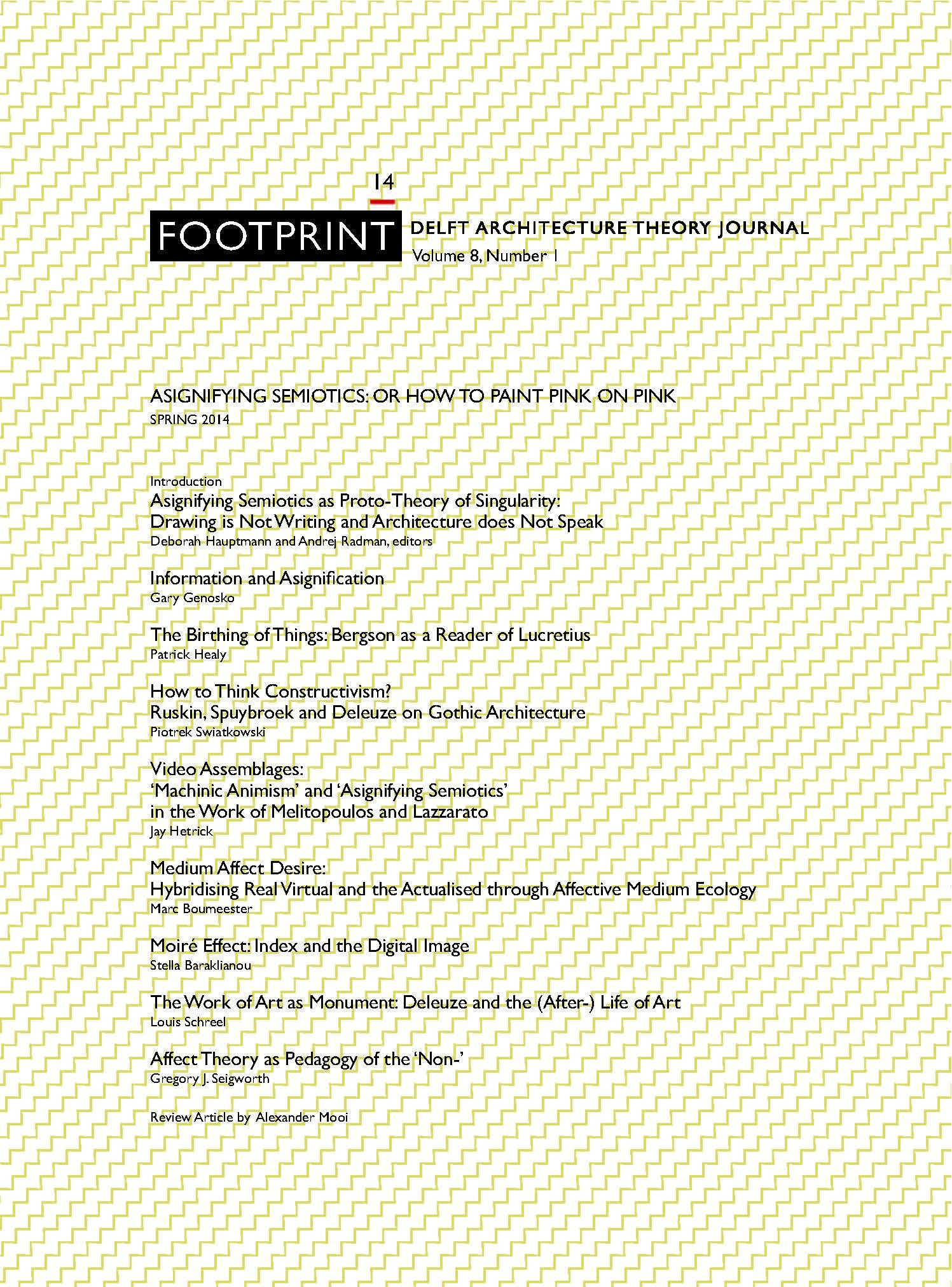Asignifying Semiotics as Proto-Theory of Singularity: Drawing is Not Writing and Architecture does Not Speak
DOI:
https://doi.org/10.7480/footprint.8.1.794Abstract
We have recently witnessed a confession of a fellow architect with which we fully identify. We, too, belong to the generation educated under the semiotic regime, which – as we will argue in our introduction – has run its course. We also believe that the idea of ‘architecture as language’ might have been useful as an analytical tool but never as a design mechanism. After all, creativity comes first and routinisation follows. As the title of Footprint 14 suggests, this is a general plea to have done with the hegemony of the linguistic signifier. Signifying semiotics is but a fraction of a much broader asignifying semiotics. We propose to approach the issue qua Spinozist practice of ethology, defined as the study of capacities, or – as we would like to think of it – a proto-theory of singularity. This is as much an ethical or political problem as it is an aesthetic one. It concerns what the cultural critic Steven Shaviro recently qualified as a primordial form of sentience that is non-intentional, non-correlational, and anoetic. The Affective Turn will be measured against the unavoidable Digital Turn. We will conclude by reversing the famous Wittgensteinian dictum whereby what we cannot speak about we must not pass over in silence. A brief summary of contributions, which are by no means limited to architecture, is concluded with a politically charged epilogue. The very last paragraph of the epilogue reveals the pink-on-pink reference.
Downloads
Published
Issue
Section
License
- Authors retain copyright and grant the journal right of first publication with the work simultaneously licensed under a Creative Commons Attribution License that allows others to share the work with an acknowledgement of the work's authorship and initial publication in this journal.
- Authors are able to enter into separate, additional contractual arrangements for the non-exclusive distribution of the journal's published version of the work (e.g., post it to an institutional repository or publish it in a book), with an acknowledgement of its initial publication in this journal.





